Saturday, May 19 2018
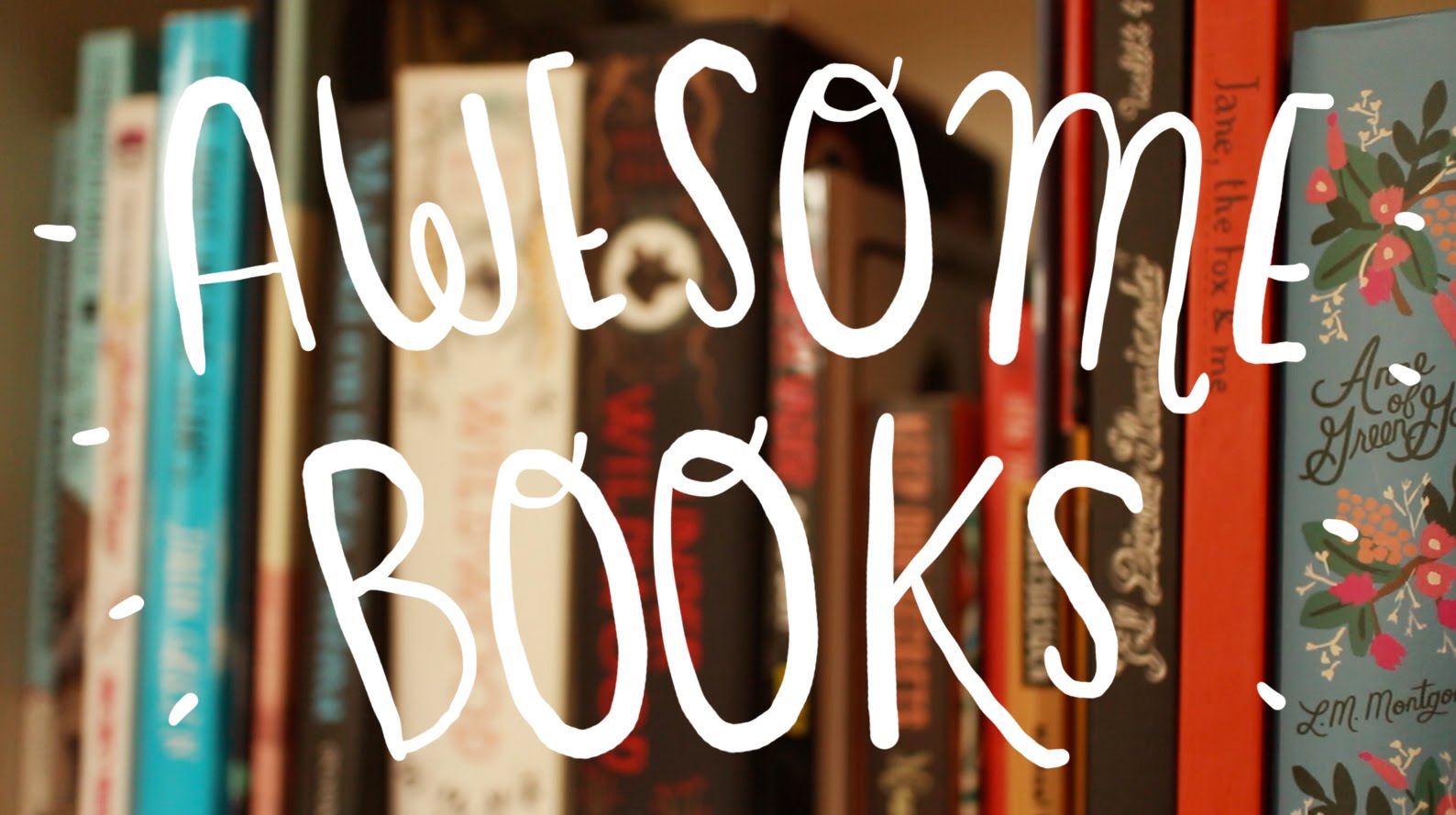 This month's Round Robin Blog Hop is about - How do you ensure a story has a good beginning, a satisfying ending, and good continuity in between? This month's Round Robin Blog Hop is about - How do you ensure a story has a good beginning, a satisfying ending, and good continuity in between?
My initial answer to this question is a lot of hard work and clear-sighted editing. Although up to now all my published works have been written more or less by the seat of my pants, I always had a very clear idea of where and how the book was going to end. But getting sidetracked getting there was pretty easy. I’m guessing that plotting, the more detailed the plotting, would be less likely to require a vicious pruning when the edits begin, but either way, pruning is required. More about that later…
My beginnings are usually pretty clear in my mind long before I start writing. Whenever a brilliantly seductive story idea comes to me, it usually arrives in the form of a detailed opening scene. I have a whole file filled with such scenes that I write down as soon as they come to me including all the details that I see in my mind and adding notes on where the story might go from there. When I’m ready to take one of these ideas and run with it, I  start by fleshing out my main character or characters with in-depth backstories. Over the years I’ve collected a few different character questionnairs that help me discover who these people are, where they came from, what they want most, what they fear and who they love or have loved in the past. Then I’m ready to write. I put my characters in the opening scene and let them run with it. Sometimes that opening scene is just as compelling as it was when I first had the idea. Sometimes it takes some serious repair. start by fleshing out my main character or characters with in-depth backstories. Over the years I’ve collected a few different character questionnairs that help me discover who these people are, where they came from, what they want most, what they fear and who they love or have loved in the past. Then I’m ready to write. I put my characters in the opening scene and let them run with it. Sometimes that opening scene is just as compelling as it was when I first had the idea. Sometimes it takes some serious repair.
 One of the things I find most helpful in avoiding a sagging middle and filling in gaps from the opening to the closing of the book is my wonderful brainstorming group, the Sandy Scribblers. We meet once a month (Although they are always there via email to jump in with suggestions, opinions and answers along the way.) Our meetings are pretty losely organized and we each get our share of meeting time to discuss where we are with our story and how it’s developing. Even if no one has any real input, just verbalizing out loud what’s going on in my story often helps me see gaping holes that I know I need to work on when I get home. Other times I am struggling with some aspect of the story, or a character development issue and I toss my delimna out for the group. It’s amazing the ideas that come when four creative minds start throwing thoughts and what-ifs out there and reacting to each other. Those days I scribble notes like crazy and come home with the bit between my teeth and ready to run. One of the things I find most helpful in avoiding a sagging middle and filling in gaps from the opening to the closing of the book is my wonderful brainstorming group, the Sandy Scribblers. We meet once a month (Although they are always there via email to jump in with suggestions, opinions and answers along the way.) Our meetings are pretty losely organized and we each get our share of meeting time to discuss where we are with our story and how it’s developing. Even if no one has any real input, just verbalizing out loud what’s going on in my story often helps me see gaping holes that I know I need to work on when I get home. Other times I am struggling with some aspect of the story, or a character development issue and I toss my delimna out for the group. It’s amazing the ideas that come when four creative minds start throwing thoughts and what-ifs out there and reacting to each other. Those days I scribble notes like crazy and come home with the bit between my teeth and ready to run.
 Endings need to leave the reader feeling satisfied. In a romance it has to be happy ever after. (And never kill the family dog.) In a suspense or adventure, your protagonist needs to have overcome all the obstacles you threw in his or her way in a believable way and the bad guy vanquished – if not dead. In this kind of series, the disastert the hero or heroine struggled througout the book to avert must be averted but the bad guy might live to fight another day in Endings need to leave the reader feeling satisfied. In a romance it has to be happy ever after. (And never kill the family dog.) In a suspense or adventure, your protagonist needs to have overcome all the obstacles you threw in his or her way in a believable way and the bad guy vanquished – if not dead. In this kind of series, the disastert the hero or heroine struggled througout the book to avert must be averted but the bad guy might live to fight another day in 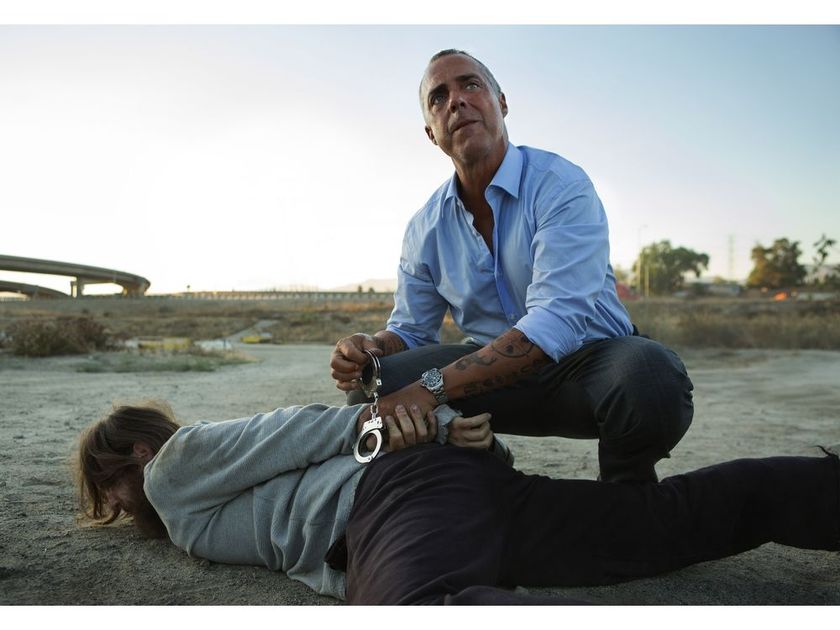 the next book. Mysteries must be unravelled and Who-done-its revealed even if the protagonist (in a series) carries his or her personal demons forward into the next book. Whatever your genre, the best endings leave the reader scrambling to see if you’ve another book out that they haven’t read yet. the next book. Mysteries must be unravelled and Who-done-its revealed even if the protagonist (in a series) carries his or her personal demons forward into the next book. Whatever your genre, the best endings leave the reader scrambling to see if you’ve another book out that they haven’t read yet.
How do I make sure all these things happen?
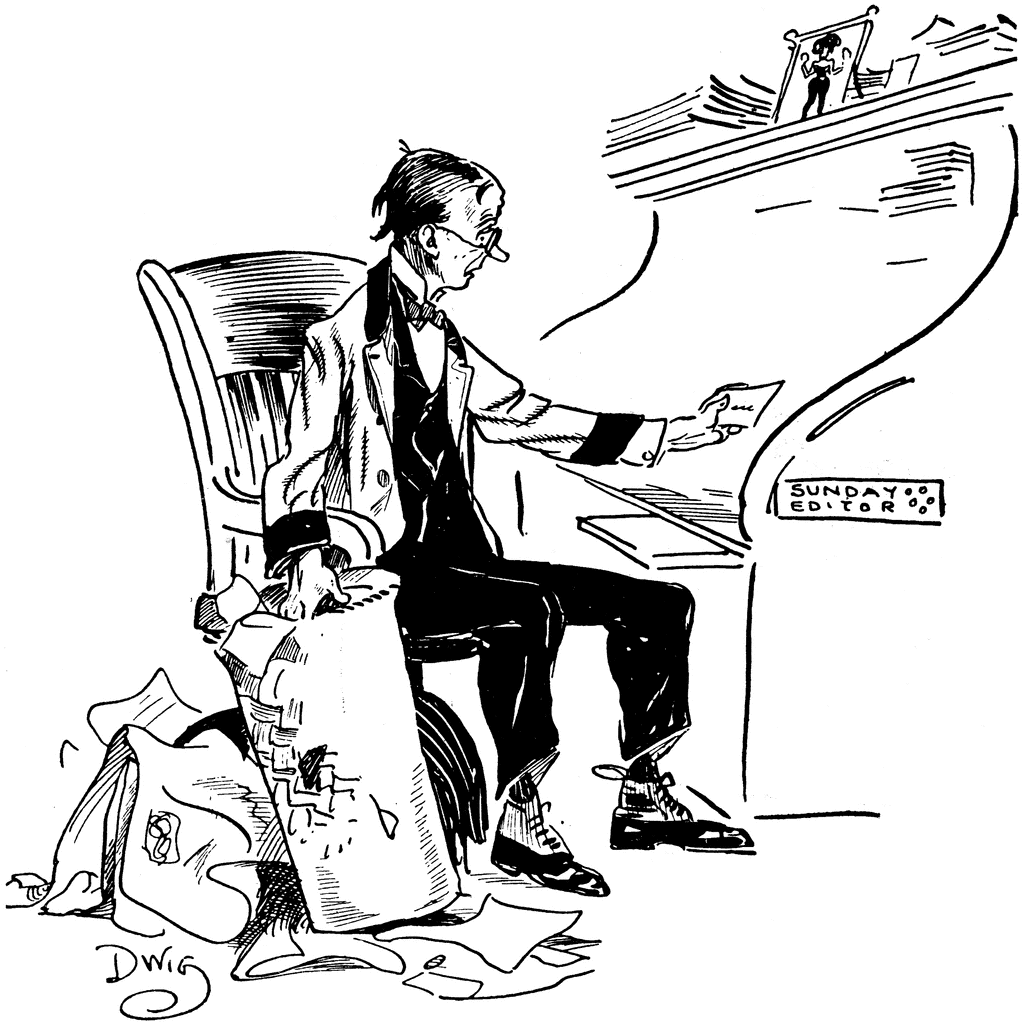 Once I am done with my first draft, I nearly always have a raft of things I already know I need to fix, add, delete or change, but I set the story aside for a few days and embark on something unrelated. Then I take that notebook of fixes and do my first big revision. Now it’s time to send the manuscript out to my beta readers. They aren’t necessarily doing a detailed critique, although sometimes they do that too. What they are doing is looking for that BAM! Beginning, the continuity and the satisfying ending. And they are honest with me about their reactions, and I’m back to the editing and that pruning I mentioned earlier. I might have some wonderfully, cleverly, brilliant passages, sparkling dialog or scenes I thought anyone would just fall into and feel like they were there. But if my beta readers tell Once I am done with my first draft, I nearly always have a raft of things I already know I need to fix, add, delete or change, but I set the story aside for a few days and embark on something unrelated. Then I take that notebook of fixes and do my first big revision. Now it’s time to send the manuscript out to my beta readers. They aren’t necessarily doing a detailed critique, although sometimes they do that too. What they are doing is looking for that BAM! Beginning, the continuity and the satisfying ending. And they are honest with me about their reactions, and I’m back to the editing and that pruning I mentioned earlier. I might have some wonderfully, cleverly, brilliant passages, sparkling dialog or scenes I thought anyone would just fall into and feel like they were there. But if my beta readers tell  me they don’t move the story forward and dragged them down, they have to go. Clip! Clip! If I’ve got big holes where my readers didn’t get why my hero did this, or my heroine thought that, then I know I left stuff out that my reader needed. Or maybe I need to rethink what my hero did or my heroine thought. Maybe it doesn’t make sense and I need to figure out why. Time to go back and add the things I’d skipped blithely over because I was too close to the story. It’s a matter of seeing the forest for the trees. me they don’t move the story forward and dragged them down, they have to go. Clip! Clip! If I’ve got big holes where my readers didn’t get why my hero did this, or my heroine thought that, then I know I left stuff out that my reader needed. Or maybe I need to rethink what my hero did or my heroine thought. Maybe it doesn’t make sense and I need to figure out why. Time to go back and add the things I’d skipped blithely over because I was too close to the story. It’s a matter of seeing the forest for the trees.
If an author is honest about their work, they can read their own book and ask themselves as they go, “Does this scene really drive the plot forward?” “Does it tell the reader something they really need to know?” Or, “Are these wasted words, however cleverly written?” It’s probably a little harder to ask yourself if this beginning grabs you and won’t let go because it obviously grabbed you enough to devote all those hours to writing the rest of the story, but ask yourself, if this was a book on a shelf I was thinking about buying, would I put the book down after reading those first few paragraphs? Or would I head to the cashier with it? Be brutal with your answers because the readers will be. There are millions of books vying for their attention so if you haven’t really, REALLY grabbed them in that first few paragraphs, they’ll never find out how wonderful the rest of the story turned out.
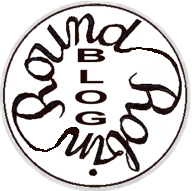 Wonder how these other authors get their beginnings, middles and endings right? Check them out. Wonder how these other authors get their beginnings, middles and endings right? Check them out.
Anne de Gruchy
Marci Baun
Judith Copek
Margaret Fieland
Dr. Bob Rich
A.J. Maguire
Beverley Bateman
Rhobin L Courtright
Saturday, April 21 2018
How do authors establish a story, its characters, and setting?
.
 Stories don’t just appear in an author’s head, fleshed out with three-dimensional characters in a lush and well-defined setting. As we’ve discussed before, story ideas come from any number of places: overheard conversations, the front page of the daily paper and the latest scandal in Washington or Hollywood, our neighborhoods, childhoods and a dozen other places. But turning those ideas into a novel is a blending of the characters and the setting. Stories don’t just appear in an author’s head, fleshed out with three-dimensional characters in a lush and well-defined setting. As we’ve discussed before, story ideas come from any number of places: overheard conversations, the front page of the daily paper and the latest scandal in Washington or Hollywood, our neighborhoods, childhoods and a dozen other places. But turning those ideas into a novel is a blending of the characters and the setting.
.
Recently I mentioned how the idea came to me for my time travel, IAIN’S PLAID, but once my heroine had traveled into the  past the historical events of that time became part of her story and in researching those years, other ideas came to me. My heroine was faced with a world on the verge of war and her knowledge of the outcome helped to create her character, but as knowledgeable as she was about the history of that time, the reality of being there drove her story, changed her goals and perspective. Once I knew she was going to land in 1775 and because I grew up near Boston Massachusetts, there was plenty of “setting” to color her world, create conflict for her and flesh out that initial idea into an amazing adventure. past the historical events of that time became part of her story and in researching those years, other ideas came to me. My heroine was faced with a world on the verge of war and her knowledge of the outcome helped to create her character, but as knowledgeable as she was about the history of that time, the reality of being there drove her story, changed her goals and perspective. Once I knew she was going to land in 1775 and because I grew up near Boston Massachusetts, there was plenty of “setting” to color her world, create conflict for her and flesh out that initial idea into an amazing adventure.
.
In my first novel, THE CANDIDATE, the idea for my hero to be handed a photo that caught him off guard, jerking him back to a time he’d  done everything to forget, and to emotions he never wanted to relive came to me after I saw the stage play Miss Saigon. Then I decided to place him in the midst of a hotly contested race for the White House, so that the photo and the man who brought it to him challenged everything Matt Steele thought he knew about himself, and the choice he faces, to put honor on the line could change the outcome of the election. Given that premise, the venue was mostly Washington, DC. I’ve been in DC many times and over the course of writing the novel, I visited three more times. Being able to walk the streets and corridors of our nation’s capitol as I put my story together made creating the setting much richer. Being a story set in today’s world, there were dozens of ideas taken from current events to help me create the characters and their world. done everything to forget, and to emotions he never wanted to relive came to me after I saw the stage play Miss Saigon. Then I decided to place him in the midst of a hotly contested race for the White House, so that the photo and the man who brought it to him challenged everything Matt Steele thought he knew about himself, and the choice he faces, to put honor on the line could change the outcome of the election. Given that premise, the venue was mostly Washington, DC. I’ve been in DC many times and over the course of writing the novel, I visited three more times. Being able to walk the streets and corridors of our nation’s capitol as I put my story together made creating the setting much richer. Being a story set in today’s world, there were dozens of ideas taken from current events to help me create the characters and their world.
.
 My contemporary romance series, The Camerons of Tide’s Way, got off to a rather different start. The first book in the series was written on a dare. Could I actually write a contemporary romance? It was a trial and error endeavor. I created a hero and heroine and gave them conflicting goals and then just started writing – by the seat of my pants. I have mentioned that I’m a pantser, right? The book was written, pitched and even optioned by an editor, but the one thing seriously missing was the My contemporary romance series, The Camerons of Tide’s Way, got off to a rather different start. The first book in the series was written on a dare. Could I actually write a contemporary romance? It was a trial and error endeavor. I created a hero and heroine and gave them conflicting goals and then just started writing – by the seat of my pants. I have mentioned that I’m a pantser, right? The book was written, pitched and even optioned by an editor, but the one thing seriously missing was the  setting. It could have been anywhere USA. But my editor wanted to “feel” where it was. Since I love the ocean and have lived reasonably near it all my life, I ended up choosing a fictitious sea-side small town somewhere in North Carolina. Again, I visited the area, talked to folk who lived there, took dozens of photos and found myself another author who was a life-long resident of North Carolina to be my go-to person for dialect, diet, flora and fauna and a hundred other setting type bits of information. setting. It could have been anywhere USA. But my editor wanted to “feel” where it was. Since I love the ocean and have lived reasonably near it all my life, I ended up choosing a fictitious sea-side small town somewhere in North Carolina. Again, I visited the area, talked to folk who lived there, took dozens of photos and found myself another author who was a life-long resident of North Carolina to be my go-to person for dialect, diet, flora and fauna and a hundred other setting type bits of information.
.
 But setting is more than just the place in time, or the physical location. It’s also what your characters are doing? What are their careers? What do they do for fun? If your character is a Marine, as some of mine have been, it’s important to understand the world of a Marine, from his or her mindset, which will be different than a civilian, to the clothing they wear and the hierarchy of leadership. A military world is very different than a civilian one But setting is more than just the place in time, or the physical location. It’s also what your characters are doing? What are their careers? What do they do for fun? If your character is a Marine, as some of mine have been, it’s important to understand the world of a Marine, from his or her mindset, which will be different than a civilian, to the clothing they wear and the hierarchy of leadership. A military world is very different than a civilian one  even if both of them exist side by side in the same physical location. The same would be true for law enforcement or the medical or legal professions. Living and working in a courtroom is a very different setting than that of an office in a brokerage house, and those differences in setting will help to drive the plot as well as define the characters. even if both of them exist side by side in the same physical location. The same would be true for law enforcement or the medical or legal professions. Living and working in a courtroom is a very different setting than that of an office in a brokerage house, and those differences in setting will help to drive the plot as well as define the characters.
.
 I think research is a MUST for a writer. They tell you to write what you know, but let’s face it, after the first couple books you can’t keep giving all your characters the same career, or family life, or back story. Research is obvious for anyone writing a novel in a historical setting, but it’s just as important for those who write in the world they live in today. My newest project is a mystery that I hope will become a series. As part of that research, I signed up for a ride-along with a deputy sheriff from my county. When he picked me up, I had a notebook full of questions to help me get the setting and the job done right. But in the course of the seven hours I spent in the front seat of his cruiser listening to his answers and other stories he chose to tell, whole new ideas for conflict popped into my head. I was fortunate to be paired I think research is a MUST for a writer. They tell you to write what you know, but let’s face it, after the first couple books you can’t keep giving all your characters the same career, or family life, or back story. Research is obvious for anyone writing a novel in a historical setting, but it’s just as important for those who write in the world they live in today. My newest project is a mystery that I hope will become a series. As part of that research, I signed up for a ride-along with a deputy sheriff from my county. When he picked me up, I had a notebook full of questions to help me get the setting and the job done right. But in the course of the seven hours I spent in the front seat of his cruiser listening to his answers and other stories he chose to tell, whole new ideas for conflict popped into my head. I was fortunate to be paired 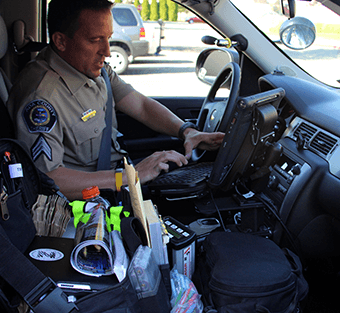 with a man who had 17 years of experience, had done undercover work, been an investigator, been in two gun fights and managed to save the life of another deputy in one of them among other things. He had lots of interesting stuff to impart. I also got to watch him in action, not just “on the job” but interacting with his fellow deputies and with supervisors. It was one of the most interesting research experiences I’ve had and he ended it with passing along his email address and cell number, inviting me to contact him any time with other questions. with a man who had 17 years of experience, had done undercover work, been an investigator, been in two gun fights and managed to save the life of another deputy in one of them among other things. He had lots of interesting stuff to impart. I also got to watch him in action, not just “on the job” but interacting with his fellow deputies and with supervisors. It was one of the most interesting research experiences I’ve had and he ended it with passing along his email address and cell number, inviting me to contact him any time with other questions.
.
 Do I have a method for creating my characters, settings and stories? My first thought about that was no. I’m a pantser. I just write what comes into my head, but as I wrote this blog, I realized that it’s not as undisciplined as that. I don’t write detailed outlines of my stories before I start writing, but I always have a vision of where and how my story is going to end, and in creating my setting and doing my research, I learn a whole lot more about the characters and what drives them, what they are afraid of and what brings them satisfaction and joy. Do I have a method for creating my characters, settings and stories? My first thought about that was no. I’m a pantser. I just write what comes into my head, but as I wrote this blog, I realized that it’s not as undisciplined as that. I don’t write detailed outlines of my stories before I start writing, but I always have a vision of where and how my story is going to end, and in creating my setting and doing my research, I learn a whole lot more about the characters and what drives them, what they are afraid of and what brings them satisfaction and joy.
.
 Why not hop on over and see how these other authors pull together their stories, characters and settings? Why not hop on over and see how these other authors pull together their stories, characters and settings?
Dr. Bob
A.J. Maguire
Marci Baun
Beverley Bateman
Margaret Fieland
Connie Vines
Rhobin L Courtright
Judy Copek
Saturday, March 24 2018
Hard to believe it’s been a month already since our last Round Robin Blog – of course February is a short month, but still! So here we are in March and this month our topic is: Where do our stories come from?
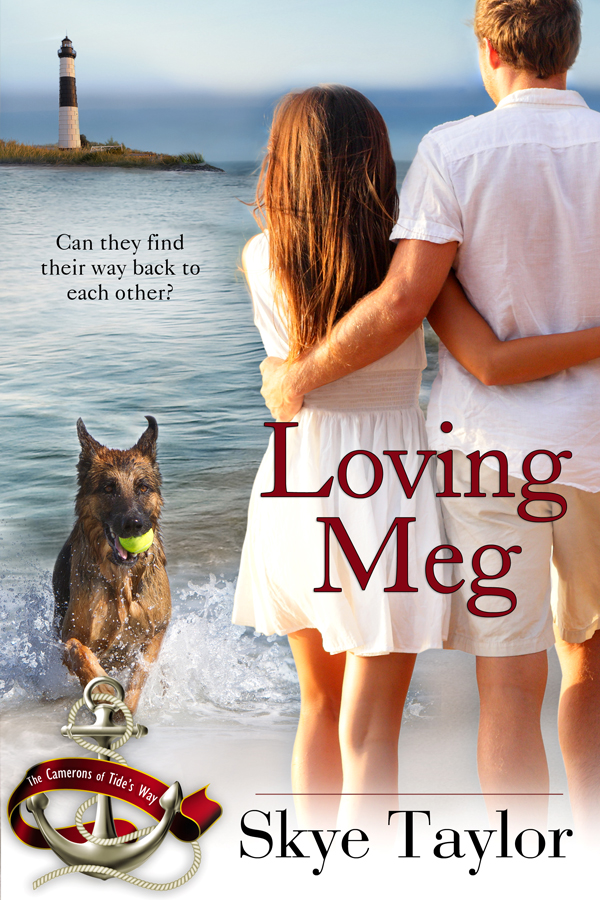 The short answer is everywhere. I’m a people watcher and some of my story ideas have come while watching people. I got one idea at an airport where I saw a woman waiting for someone and it turned out to be her soldier husband. The second book in my Camerons of Tide’s Way series, Loving Meg, begins with a man waiting for his wife to return from a year-long deployment. I switched it up so the woman was the Marine and the husband was the one left holding down the fort at home. The short answer is everywhere. I’m a people watcher and some of my story ideas have come while watching people. I got one idea at an airport where I saw a woman waiting for someone and it turned out to be her soldier husband. The second book in my Camerons of Tide’s Way series, Loving Meg, begins with a man waiting for his wife to return from a year-long deployment. I switched it up so the woman was the Marine and the husband was the one left holding down the fort at home.
 Another of my stories I think I’ve mentioned before blossomed in my brain as I stood on the brink of an old foundation wondering about the people who once lived on that island and what kind of building this particular foundation had been. It occurred to me suddenly, what if I fell into that old cellar hole, hit my head and woke up in another century with a roof over my head? Which is exactly what happened to my heroine in Iain’s Plaid when she sailed out to explore an abandoned island with a long and fascinating history. To read more about this fascinating island, click here: Damariscove. Another of my stories I think I’ve mentioned before blossomed in my brain as I stood on the brink of an old foundation wondering about the people who once lived on that island and what kind of building this particular foundation had been. It occurred to me suddenly, what if I fell into that old cellar hole, hit my head and woke up in another century with a roof over my head? Which is exactly what happened to my heroine in Iain’s Plaid when she sailed out to explore an abandoned island with a long and fascinating history. To read more about this fascinating island, click here: Damariscove.
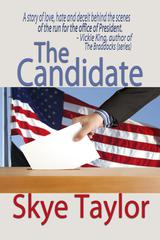 My first book, The Candidate (Originally Whatever It Takes) grew out of an idea that came to me after I’d been to see Miss Saigon, but much of the story idea came from a combination of news stories that were current at the time and stories my brother told me about his time in Vietnam and since returning home. My premise was what if a candidate for president was suddenly faced with memories from his past that threatened to undo him and everything he thought he knew about himself in the middle of his campaign? He had to have an opponent so I decided to make it a three-way race for the White House and got ideas for the other two candidates right from the front pages of the news. My first book, The Candidate (Originally Whatever It Takes) grew out of an idea that came to me after I’d been to see Miss Saigon, but much of the story idea came from a combination of news stories that were current at the time and stories my brother told me about his time in Vietnam and since returning home. My premise was what if a candidate for president was suddenly faced with memories from his past that threatened to undo him and everything he thought he knew about himself in the middle of his campaign? He had to have an opponent so I decided to make it a three-way race for the White House and got ideas for the other two candidates right from the front pages of the news.
 Another story I’ve written but is as yet unpublished is a time travel idea that was sparked by a visit to a historic home in Camden Maine. There was a portrait on the wall that looked remarkably like the great great grandson. I turned that little detail into a portrait of a couple where the woman looked eerily like the woman who had just inherited the house from a great aunt. Another story I’ve written but is as yet unpublished is a time travel idea that was sparked by a visit to a historic home in Camden Maine. There was a portrait on the wall that looked remarkably like the great great grandson. I turned that little detail into a portrait of a couple where the woman looked eerily like the woman who had just inherited the house from a great aunt.
Sometimes when I'm writing a story, one or more of the secondary characters becomes so real to me that I just know I have to write his or her story sooner or later. Sometimes the ideas come to me while I'm walking on the beach. I had been 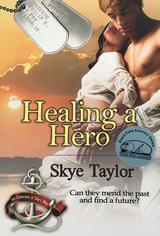 writing historical romances and just wanted to see if I could write a contemporary romance. I created the whole plot while wading in the surf one afternoon. When I pitched it, the acquiring editor wanted me to consider a series. My hero Jake had siblings so of course, they all had to have their own story. Book two, about Jake's brother, as mentioned above came from a homecoming I saw at the airport. The idea for book four, Jake's eldest brother, Healing a Hero, started with my interest and support of our military and the things they deal with both in and out of the service and parts of it were based on actual events that fit my timeline and story. writing historical romances and just wanted to see if I could write a contemporary romance. I created the whole plot while wading in the surf one afternoon. When I pitched it, the acquiring editor wanted me to consider a series. My hero Jake had siblings so of course, they all had to have their own story. Book two, about Jake's brother, as mentioned above came from a homecoming I saw at the airport. The idea for book four, Jake's eldest brother, Healing a Hero, started with my interest and support of our military and the things they deal with both in and out of the service and parts of it were based on actual events that fit my timeline and story.
 Sometimes I have a nugget of an idea – not really a whole story, but just a thought, that I take to my monthly brainstorming group we call the Magnificent Sandy Scribblers. I toss the idea out and we bat it back and forth. One of the ladies in this group I call Mayhem because she comes up with all the worst things that could happen. It’s a good balance for me as I tend to shelter my characters from serious hurt which kills the conflict. I come home with tons of possibilities and threads that sometimes lead to a whole story. Stories are all around us. In the newspaper, on TV, in the lives of our friends and neighbors and even in our own lives. Check out these other authors and see where they get their story ideas. Sometimes I have a nugget of an idea – not really a whole story, but just a thought, that I take to my monthly brainstorming group we call the Magnificent Sandy Scribblers. I toss the idea out and we bat it back and forth. One of the ladies in this group I call Mayhem because she comes up with all the worst things that could happen. It’s a good balance for me as I tend to shelter my characters from serious hurt which kills the conflict. I come home with tons of possibilities and threads that sometimes lead to a whole story. Stories are all around us. In the newspaper, on TV, in the lives of our friends and neighbors and even in our own lives. Check out these other authors and see where they get their story ideas.
 A.J. Maguire A.J. Maguire
Connie Vines
Anne de Gruchy
Helena Fairfax
Margaret Fieland
Dr. Bob Rich
Fiona McGier
Rhobin L Courtright
Saturday, February 24 2018
 This month's Round Robin blog is about: Your characters come from your mind, from other people you've witnessed, but can you create their lives without them revealing something about yourself? Have they ever taught you something? This month's Round Robin blog is about: Your characters come from your mind, from other people you've witnessed, but can you create their lives without them revealing something about yourself? Have they ever taught you something?
I have a feeling we all reveal some small bits about ourselves in all our characters, both the heroes and the villains. Often it’s not deliberate, or even noticed, but thoughts,  expressions, feelings, tics, histories, dreams, likes, dislikes, desires and fears sneak their way into the characters we create and torment for the next 200 or 300 pages. expressions, feelings, tics, histories, dreams, likes, dislikes, desires and fears sneak their way into the characters we create and torment for the next 200 or 300 pages.
As a romance writer, creating heroes always means giving them attributes that I find appealing which says a lot about what I find attractive in a man. It probably says something about the things the men in my life have failed at, too. For my heroines, it might be things I wish I was and know I’m not. Or she  might have a lot of the same desires, drives, dreams and flaws that I am so familiar with because I live them every day. might have a lot of the same desires, drives, dreams and flaws that I am so familiar with because I live them every day.
In any genre, including romance, there is usually a villain or an antagonist who can reveal something about the author, even when the author is the kindest of souls and would never for a moment consider doing any of the evil things the villain has in mind. Perhaps the villain threatens the thing the author is  most afraid of in his or her personal life. When I was a small child, my family was driving home after dark when a fire truck raced past and my father decided to follow it. When we got there the house was already engulfed in flames and we watched fascinated as the firefighters fought to quell the blaze. For years after that I had nightmares about my house burning down. Sometimes I was worried about my safety and my family. Sometimes I was more worried about all the things I might lose. How easy it would be for me to create a villain who happened to be an arsonist and in so doing, reveal all my personal horrors. most afraid of in his or her personal life. When I was a small child, my family was driving home after dark when a fire truck raced past and my father decided to follow it. When we got there the house was already engulfed in flames and we watched fascinated as the firefighters fought to quell the blaze. For years after that I had nightmares about my house burning down. Sometimes I was worried about my safety and my family. Sometimes I was more worried about all the things I might lose. How easy it would be for me to create a villain who happened to be an arsonist and in so doing, reveal all my personal horrors.
 Of course, some authors deliberately include themselves or their biases, political views and more. Sometimes a best-selling author might use their powerful far-reaching platform to advance a cause as Suzanne Brockmann has done to promote acceptance of the gay lifestyle. Other authors have used their knowledge of the inner workings of politics to write novels with a political agenda, either conservative or liberal. And of course, there are the memoirs that are all about the author to start with. Of course, some authors deliberately include themselves or their biases, political views and more. Sometimes a best-selling author might use their powerful far-reaching platform to advance a cause as Suzanne Brockmann has done to promote acceptance of the gay lifestyle. Other authors have used their knowledge of the inner workings of politics to write novels with a political agenda, either conservative or liberal. And of course, there are the memoirs that are all about the author to start with.
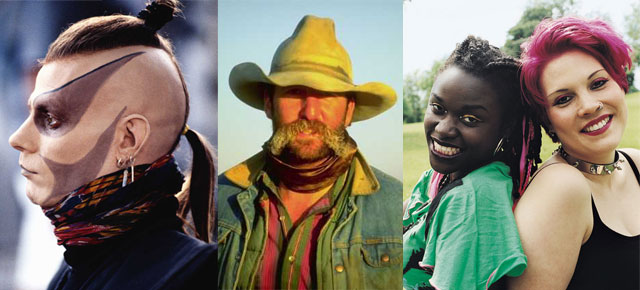 As for the question, have any of my characters taught me something? I can’t speak for all authors, but I have definitely learned from my characters, especially those who are very unlike myself, either in personality or in outlook and beliefs. If you deliberately choose to create a character who is of a different ethnic or religious background - I hope to God you have done the research - how can that character not teach you something? Perhaps tolerance for a different point As for the question, have any of my characters taught me something? I can’t speak for all authors, but I have definitely learned from my characters, especially those who are very unlike myself, either in personality or in outlook and beliefs. If you deliberately choose to create a character who is of a different ethnic or religious background - I hope to God you have done the research - how can that character not teach you something? Perhaps tolerance for a different point  of view, or acceptance of a different way of life. Even villains have their reasons and while some are just pure evil, most have something about them a reader and the author can relate to or have sympathy for. Nearly all my characters have taught me patience. I create them and love them, then I create a world of trouble for them to deal with, but real problems don’t go away overnight. I can’t write them out of trouble from one chapter to the next or I have no story so I have to be patient while they grow, get stronger, come to terms with life and triumph. of view, or acceptance of a different way of life. Even villains have their reasons and while some are just pure evil, most have something about them a reader and the author can relate to or have sympathy for. Nearly all my characters have taught me patience. I create them and love them, then I create a world of trouble for them to deal with, but real problems don’t go away overnight. I can’t write them out of trouble from one chapter to the next or I have no story so I have to be patient while they grow, get stronger, come to terms with life and triumph.
Why not hop on over and check out these authors and how they see themselves in their characters, or perhaps get a peek at what their characters have taught them.
A.J. Maguire
Marci Baun
Marie Laval
Judith Copek
Dr. Bob Rich
Rachael Kosinski
Beverley Bateman
Fiona McGier
Connie Vines
Rhobin L Courtright
Saturday, January 20 2018
 This month the subject of our Round Robin blog is Point of View. Interestingly, or coincidentally, my brainstorming group, The Sandy Scribblers discussed this very topic at our meeting earlier this week. This month the subject of our Round Robin blog is Point of View. Interestingly, or coincidentally, my brainstorming group, The Sandy Scribblers discussed this very topic at our meeting earlier this week.
If you’re an author, you’ve probably given this topic a lot of thought and have maybe tried writing in different points of view to see how it impacts giving the reader the information they need to know. If you’re a reader, you might very well have given the difference no thought at all, so long as you enjoyed the story and felt thoroughly engaged in the action.
.
 The basic points of view are omniscient or author point of view, third person from one or more characters’ points of view or first person, which is a single character’s point of view. As my Scribbler buddies mentioned, there is also second person. Not used in story telling, at least not very often, it’s more about instructional information: as in, “Once you have all the parts removed from the packing and spread out in front of you, look for part number one. This is your base.” Or “To get to the high school, you drive south on Main Street and you’ll want to get in the left hand lane so you can turn left on Market, then go two blocks and the school will be on your right. Good for telling someone how to get something done, but not so good for telling stories. The basic points of view are omniscient or author point of view, third person from one or more characters’ points of view or first person, which is a single character’s point of view. As my Scribbler buddies mentioned, there is also second person. Not used in story telling, at least not very often, it’s more about instructional information: as in, “Once you have all the parts removed from the packing and spread out in front of you, look for part number one. This is your base.” Or “To get to the high school, you drive south on Main Street and you’ll want to get in the left hand lane so you can turn left on Market, then go two blocks and the school will be on your right. Good for telling someone how to get something done, but not so good for telling stories.
.
 Omniscient is one way for the author to let the reader in on information that the characters may not know. Perhaps you’re reading a story where Jack is handed court documents that have to be delivered to the courthouse right away. “Jack’s assistant, who should have been around to run errands had fallen in the parking lot and was not at her desk. Jack needed to be in the judge’s chambers but the papers still needed to be delivered. He’d have to run them across the street himself.” If the next line is, “Little did Jack know this decision would change his life,” This is omniscient because there is no way Jack could know his decision and the result, good or bad, would turn out to be life-changing. He has no way of knowing why his assistant is not at her desk either. Omniscient is one way for the author to let the reader in on information that the characters may not know. Perhaps you’re reading a story where Jack is handed court documents that have to be delivered to the courthouse right away. “Jack’s assistant, who should have been around to run errands had fallen in the parking lot and was not at her desk. Jack needed to be in the judge’s chambers but the papers still needed to be delivered. He’d have to run them across the street himself.” If the next line is, “Little did Jack know this decision would change his life,” This is omniscient because there is no way Jack could know his decision and the result, good or bad, would turn out to be life-changing. He has no way of knowing why his assistant is not at her desk either.
.
 If Jack’s decision is being told in third person, it might read like this: “Jack hesitated. He was already running late. This was his assistant’s responsibility. Jack checked the woman’s cubicle, but it was empty. He sighed in irritation. He’d just have to run over to the courthouse himself and hope the judge wouldn’t be on time.” If Jack’s decision is being told in third person, it might read like this: “Jack hesitated. He was already running late. This was his assistant’s responsibility. Jack checked the woman’s cubicle, but it was empty. He sighed in irritation. He’d just have to run over to the courthouse himself and hope the judge wouldn’t be on time.”
.
First person it might read like this. “These damned court papers should have been delivered yesterday, not handed to me now. If I’m late in the judge’s office, I’ll get skinned alive. Where is that airhead assistant who’s supposed to be helping me out, anyway? This is her job. I sighed and headed back out the door, taking the stairs two at a time. Maybe Judge Henderson will be late, too.”
.
All of these tell the reader that Jack, presumably a lawyer or paralegal, has an assistant, that the assistant is a woman, but she’s not currently available, that he’s running late and has an important meeting with a judge, but now there are papers that need to be delivered to the courthouse right now. And they all tell the reader that Jack is stuck hurrying to get the papers delivered and hoping not to get in trouble with the judge. But which one draws you closer into the story? Which one puts you in Jack’s shoes and makes you feel his irritation?
.
 Until now, all my books have been written in third person in the character’s viewpoints. I have no need to foreshadow coming events. If they surprise the characters, then they’ll surprise the reader too, which is good. I want to SHOW my reader what’s happening, rather than tell him. I want my reader to feel what my character is feeling or at least have some sympathy for his problems. Until now, all my books have been written in third person in the character’s viewpoints. I have no need to foreshadow coming events. If they surprise the characters, then they’ll surprise the reader too, which is good. I want to SHOW my reader what’s happening, rather than tell him. I want my reader to feel what my character is feeling or at least have some sympathy for his problems.
.
But I love and have always enjoyed reading first person, too. It’s a hard option to write well and still get information about other characters, their feelings and thoughts across to the reader when you are always in the first person  character’s point of view. But when done right, it can draw the reader that much closer to the character. Being INSIDE the head of the point of view character, experiencing what they are thinking, feeling and seeing pulls me into the story, puts me right there, on the scene experiencing what the character is experiencing. So close that when the character has a close call, the I find myself holding my breath or puckering up for the kiss I can see and feel coming. character’s point of view. But when done right, it can draw the reader that much closer to the character. Being INSIDE the head of the point of view character, experiencing what they are thinking, feeling and seeing pulls me into the story, puts me right there, on the scene experiencing what the character is experiencing. So close that when the character has a close call, the I find myself holding my breath or puckering up for the kiss I can see and feel coming.
.
Here’s another example:
Omniscient or narrator point of view.
The woman walked through the early evening dusk as if there was no reason to fear anything, but this part of the park was off the beaten track and bad things had happened here before as dark closed in. Just a couple years ago, a teenager had disappeared never to be seen again in spite of exhaustive searches and pleas by her parents on the evening news. Of course, this woman hadn’t moved to Middletown yet, so she wouldn’t know about that.
Compare this third person – same scene.
 Katy walked cautiously through the growing gloom. She’d never heard about anything bad happening here, but it was spooky just the same. Things could hide in the lengthening shadows. Things that made strange whispering noises and made the hair on the back of her neck stand up. Maybe she should have gone the long way home. Katy walked cautiously through the growing gloom. She’d never heard about anything bad happening here, but it was spooky just the same. Things could hide in the lengthening shadows. Things that made strange whispering noises and made the hair on the back of her neck stand up. Maybe she should have gone the long way home.
Or same scene, first person:
The whispering sound came out of nowhere and my hair stood on end. I hesitated, heard nothing. What was I afraid of, anyway? That spooky sound is all in my imagination. I straightened my shoulders and marched on.
.
Which one makes you feel like you’re there? Right in that evening gloom and beginning to think you should have walked the long way home?
SO, that’s my opinion. Why not hop on over to these other blogs and see how other authors handle the choice of who’s point of view to tell a story in?
.

Dr. Bob Rich
Connie Vines
Helena Fairfax
Fiona McGier
Judith Copek
Marci Baun
Anne de Gruchy
A.J. Maguire
Anne Stenhouse
Beverley Bateman
Rhobin L Courtright
Diane Bator
Tuesday, January 09 2018
 A writer friend of mine started a Facebook page dedicated to positive, uplifting and encouraging thoughts. Each Monday there’s a new topic for us to post comments on. This week, it was “Trying something new.” I got to thinking about how trying something new has enriched my life, challenged me to be a better person, given me some new insight, taught me humility, taught me grace and so much more. A writer friend of mine started a Facebook page dedicated to positive, uplifting and encouraging thoughts. Each Monday there’s a new topic for us to post comments on. This week, it was “Trying something new.” I got to thinking about how trying something new has enriched my life, challenged me to be a better person, given me some new insight, taught me humility, taught me grace and so much more.
'
 A couple years ago when the subject of my Peace Corps experience came up, a woman told me she thought I was very brave to volunteer. That comment caught me off guard. Brave? Really? Admittedly, I didn’t join the Peace Corps when I was an idealistic young kid straight out of college with the belief that I could change the world, but rather, I was fifty-six. I’d been married, raised four kids, and buried by husband who died of cancer at the age of forty four. My youngest child had graduated from college and I was wondering “what next?” I was looking for an adventure. It never occurred to me that it might be a brave thing to do. It was stepping out of my comfort zone for sure. I’m lousy at languages and I knew I’d have to learn a new one in spite of that handicap. I’d have to dedicate two years of my life living half a world away in a very different place than I was accustomed to, doing who knew what for work, but that was part of the adventure. A couple years ago when the subject of my Peace Corps experience came up, a woman told me she thought I was very brave to volunteer. That comment caught me off guard. Brave? Really? Admittedly, I didn’t join the Peace Corps when I was an idealistic young kid straight out of college with the belief that I could change the world, but rather, I was fifty-six. I’d been married, raised four kids, and buried by husband who died of cancer at the age of forty four. My youngest child had graduated from college and I was wondering “what next?” I was looking for an adventure. It never occurred to me that it might be a brave thing to do. It was stepping out of my comfort zone for sure. I’m lousy at languages and I knew I’d have to learn a new one in spite of that handicap. I’d have to dedicate two years of my life living half a world away in a very different place than I was accustomed to, doing who knew what for work, but that was part of the adventure.
'
 Taking that leap of faith turned out to be one of the best experiences of my life. I have a family on the other side of the world who opened their home and hearts to me and taught me so much. I made friends I’d never have met had I not gone and enjoyed some of the most amazing experiences. I even met and spoke with a queen. I swam with humpback whales, taught English to grade school students, snorkeled over beautiful, colorful reefs, camped on deserted South Pacific islands, climbed a volcanic mountain and crawled and swam into caves. I was bit by a pig, learned to live in sweat-damp clothing all the time and welcome the rain when it came every afternoon. I heard church bells ring all over the island at midnight on New Year’s Eve, and learned how to weave a mat Tongan style. Working in a culture very different from my own was a challenge, but the rewards of taking that step out of my comfort zone outweighed the hardships about 100 to 1. So, maybe I didn’t change the world, but I changed the world for the people whose lives I touched. And they changed me forever. Taking that leap of faith turned out to be one of the best experiences of my life. I have a family on the other side of the world who opened their home and hearts to me and taught me so much. I made friends I’d never have met had I not gone and enjoyed some of the most amazing experiences. I even met and spoke with a queen. I swam with humpback whales, taught English to grade school students, snorkeled over beautiful, colorful reefs, camped on deserted South Pacific islands, climbed a volcanic mountain and crawled and swam into caves. I was bit by a pig, learned to live in sweat-damp clothing all the time and welcome the rain when it came every afternoon. I heard church bells ring all over the island at midnight on New Year’s Eve, and learned how to weave a mat Tongan style. Working in a culture very different from my own was a challenge, but the rewards of taking that step out of my comfort zone outweighed the hardships about 100 to 1. So, maybe I didn’t change the world, but I changed the world for the people whose lives I touched. And they changed me forever.
'
So try something new. You just never know how much it might change you -- for the better.
'
And if you need a little inspiration, check out this speech given by a Navy Admiral at a college graduation.
'
You can read more about my adventures in the Peace Corps under the Peace Corps tab on this website.
Monday, January 01 2018
 It’s a New Year’s Day tradition to make resolutions both large and small. Promises most of us have already broken or forgotten before January turns into February. Some folk have never made a resolution and others have given up making them because it’s so easy to fail, but I think we should put new energy into the tradition. True, every new day is another chance to make your own or someone else’s life better, but why not take a moment to reflect on your failures from last year and make a pledge to make this year better? It’s a New Year’s Day tradition to make resolutions both large and small. Promises most of us have already broken or forgotten before January turns into February. Some folk have never made a resolution and others have given up making them because it’s so easy to fail, but I think we should put new energy into the tradition. True, every new day is another chance to make your own or someone else’s life better, but why not take a moment to reflect on your failures from last year and make a pledge to make this year better?
'
 Our country right now could use a LOT of positive vibes. There is so much divisiveness everywhere, in government, in the news, and in our neighborhoods. Why not take a moment to consider what you could do to make a change – even a small one? There was a popular advertisement this holiday season fir Toys R Us with the punch line, “The naughty list is not an option.” I think everyone in our country should take this to heart, children and adults. Just think what a great year we could all have if everyone tried in at least one area of their lives to behave as if they were determined not to be on that Naughty List! From the most public of places to the intimacy of our homes, a life with less strive, hate, anger and pettiness could become so much better for everyone with more positive energy, generosity, cooperation and respect. Our country right now could use a LOT of positive vibes. There is so much divisiveness everywhere, in government, in the news, and in our neighborhoods. Why not take a moment to consider what you could do to make a change – even a small one? There was a popular advertisement this holiday season fir Toys R Us with the punch line, “The naughty list is not an option.” I think everyone in our country should take this to heart, children and adults. Just think what a great year we could all have if everyone tried in at least one area of their lives to behave as if they were determined not to be on that Naughty List! From the most public of places to the intimacy of our homes, a life with less strive, hate, anger and pettiness could become so much better for everyone with more positive energy, generosity, cooperation and respect.
'
My re solution this year is to find one nice thing to say or do for someone else each day. It might be something no one will ever know I’ve done. It might be something that lasts only a moment. But the intent will be to make the world I inhabit a happier, friendlier, more positive place for all the lives I touch. I know I can’t change the world. I can’t change the violence that erupts on our streets and in our lives. I can’t reverse decades of hatred and bigotry. I can’t stop men or women intent on creating mayhem. But I can make a change if I try hard enough for the people I know and care about, and perhaps for some who don’t know me, but whose lives will still feel the impact of my actions. solution this year is to find one nice thing to say or do for someone else each day. It might be something no one will ever know I’ve done. It might be something that lasts only a moment. But the intent will be to make the world I inhabit a happier, friendlier, more positive place for all the lives I touch. I know I can’t change the world. I can’t change the violence that erupts on our streets and in our lives. I can’t reverse decades of hatred and bigotry. I can’t stop men or women intent on creating mayhem. But I can make a change if I try hard enough for the people I know and care about, and perhaps for some who don’t know me, but whose lives will still feel the impact of my actions.
'
So, my challenge to you is to join me, and in the words of the New Seekers:
 “I'd like to see the world for once “I'd like to see the world for once
All standing hand in hand
And hear them echo through the hills
For peace throughout the land.”
Tuesday, December 26 2017
 I’ve been writing since high school, but when I got serious about writing a novel, I kept hearing the adage, “write what you know.” Well, at the time I was thoroughly immersed in regency romance. So that was what I tried first. That attempt, in pencil on yellow lined paper (before personal computers) still exists in a file drawer where it will probably still be when I’m gone. Intrigued by the idea of time travel and fascinated by history, I tried that too. Later, based partly on an experience my brother shared about his return from Vietnam and the musical Miss Saigon, the inspiration for my first published work, a mainstream novel came to me. Some of my readers asked if there was going to be a I’ve been writing since high school, but when I got serious about writing a novel, I kept hearing the adage, “write what you know.” Well, at the time I was thoroughly immersed in regency romance. So that was what I tried first. That attempt, in pencil on yellow lined paper (before personal computers) still exists in a file drawer where it will probably still be when I’m gone. Intrigued by the idea of time travel and fascinated by history, I tried that too. Later, based partly on an experience my brother shared about his return from Vietnam and the musical Miss Saigon, the inspiration for my first published work, a mainstream novel came to me. Some of my readers asked if there was going to be a  sequel, but I had no idea where I’d go with that possibility so I turned to historical romance, partly because I love history and the research was a lot of fun, especially the field trips, but after a number of rejections, I decided to try contemporary romance just to see if I could. That turned into a four (going on five) book series with Bell Bridge Books, and now I’m embarking on a whole new genre – mystery/police procedural. Some might ask why I hop around so. Most authors find their niche and stick to it. The only answer I have is that my whole life has been about pursuing new experiences and being energized by new challenges. Why wouldn’t my writing follow the same path? Along the way, I’ve learned not just the rewards of trying something new, but also the challenges of switching genres. sequel, but I had no idea where I’d go with that possibility so I turned to historical romance, partly because I love history and the research was a lot of fun, especially the field trips, but after a number of rejections, I decided to try contemporary romance just to see if I could. That turned into a four (going on five) book series with Bell Bridge Books, and now I’m embarking on a whole new genre – mystery/police procedural. Some might ask why I hop around so. Most authors find their niche and stick to it. The only answer I have is that my whole life has been about pursuing new experiences and being energized by new challenges. Why wouldn’t my writing follow the same path? Along the way, I’ve learned not just the rewards of trying something new, but also the challenges of switching genres.
"
So, maybe you’re like me and just want a new challenge. Maybe you’re burnt out on one genre or maybe you just keep getting rejections in the genre you’ve been writing, and you’ve decided it’s time try something new. How do you approaching the new genre, and find your new voice?
"
The first challenge depends on where you are in your career. If you are a successfully published author with a devoted readership, you have to be careful not to disappoint. Consider how a lover of Nicholas Sparks might react to open his latest book and discover a character like Jack Reacher, or Buffy the Vampire Slayer?  Or perhaps a fan of Tom Clancy eagerly opens his newest book and it reads like a Hallmark Christmas movie? A switch this drastic might might mean taking on a new pen name. Nora Roberts did this when she jumped from a very successful romance path to suspense and chose to do so under the name J.D. Robb. Choosing a new pen name can be a wise choice, but along with that comes an entirely new campaign for brand recognition. I haven’t yet met an author who likes the marketing aspect of being a published author so if you don’t have a big house marketing department behind you, this might be a reason to keep the same name and pray your readers still enjoy your books. Or perhaps a fan of Tom Clancy eagerly opens his newest book and it reads like a Hallmark Christmas movie? A switch this drastic might might mean taking on a new pen name. Nora Roberts did this when she jumped from a very successful romance path to suspense and chose to do so under the name J.D. Robb. Choosing a new pen name can be a wise choice, but along with that comes an entirely new campaign for brand recognition. I haven’t yet met an author who likes the marketing aspect of being a published author so if you don’t have a big house marketing department behind you, this might be a reason to keep the same name and pray your readers still enjoy your books.
"
 On the opposite end of the spectrum, if you have written several stories in a genre you’re very familiar with, that were well researched and fit the genre expectations, but you keep getting rejection letters with comments like “Just didn’t grab the reader’s interest, or not inspiring” etc, maybe it’s because you weren’t on fire about the genre or your characters and stories were just writing to the formula. Changing genres might be just what you need to ignite that spark and you’ll discover your niche in a whole new type of story. It can also be a spark if you have been writing and publishing the same genre for years and feel burned out. On the opposite end of the spectrum, if you have written several stories in a genre you’re very familiar with, that were well researched and fit the genre expectations, but you keep getting rejection letters with comments like “Just didn’t grab the reader’s interest, or not inspiring” etc, maybe it’s because you weren’t on fire about the genre or your characters and stories were just writing to the formula. Changing genres might be just what you need to ignite that spark and you’ll discover your niche in a whole new type of story. It can also be a spark if you have been writing and publishing the same genre for years and feel burned out.
"
Whatever your reasons, now that you have decided to change genres, there are a few hurdles to get past.
"
 Knowing and understanding the genre expectations. Hopefully you aren’t attempting a genre you’ve never read before just because it happens to be popular. If it is, I advise you to read, read, read. Read all the currently popular authors in that genre and boil down what you see as a pattern of success. There are also “How To” books by the dozen to give you a start. Understand the expectations of readers in that genre. If you’ve been writing thrillers where the evil boy next door gets away with poisoning the dog, you’ll quickly discover that in a romance, you never kill the pets, or the kids. Going the other way, you’ll just as quickly discover that Mr. Nice Guy, Beta personality, who was a perfectly acceptable hero in a romance will have an uphill battle to hold his own in a world of Alpha people fighting the evil of the world at every level. The local volunteer fireman who rescues kittens from trees and serves up dinners to the homeless on Saturday nights will have to up his game if he’s going to compete against the likes of (Vince Flynn’s) Mitch Rapp. Knowing and understanding the genre expectations. Hopefully you aren’t attempting a genre you’ve never read before just because it happens to be popular. If it is, I advise you to read, read, read. Read all the currently popular authors in that genre and boil down what you see as a pattern of success. There are also “How To” books by the dozen to give you a start. Understand the expectations of readers in that genre. If you’ve been writing thrillers where the evil boy next door gets away with poisoning the dog, you’ll quickly discover that in a romance, you never kill the pets, or the kids. Going the other way, you’ll just as quickly discover that Mr. Nice Guy, Beta personality, who was a perfectly acceptable hero in a romance will have an uphill battle to hold his own in a world of Alpha people fighting the evil of the world at every level. The local volunteer fireman who rescues kittens from trees and serves up dinners to the homeless on Saturday nights will have to up his game if he’s going to compete against the likes of (Vince Flynn’s) Mitch Rapp.
"
 Character or plot driven? One genre might depend entirely on action and is plot driven, as a thriller or mystery. In a mystery the plot is set: someone has been killed, the protagonist will follow the clues and the killer revealed. Of course, the characters will influence how this is done, and they should have a character arc as well, but you still need this basic plot-driven framework. While there may be an overall story conflict in a romance the conflict is primarily between the hero and the heroine and much of it internal rather than in action. All books need a story arc and character arcs, but some genres rely more heavily on one than the other. Know and understand this aspect of your new genre. Character or plot driven? One genre might depend entirely on action and is plot driven, as a thriller or mystery. In a mystery the plot is set: someone has been killed, the protagonist will follow the clues and the killer revealed. Of course, the characters will influence how this is done, and they should have a character arc as well, but you still need this basic plot-driven framework. While there may be an overall story conflict in a romance the conflict is primarily between the hero and the heroine and much of it internal rather than in action. All books need a story arc and character arcs, but some genres rely more heavily on one than the other. Know and understand this aspect of your new genre.
"
 Voice. If you’ve successfully written in one genre, you have developed a “voice” for that type of story. Now you have to find your voice all over again for this new genre. Otherwise all your stories will sound as generic as a big-city news-desk anchor who might sound like a New Yorker born and bred or a Midwestern cowboy outside the studio, but once on the air they have the same non-descript diction and pacing. It’s supposed to be professional, I presume, but in your books you want your voice to stand out and be different from everyone else writing in that genre. Voice. If you’ve successfully written in one genre, you have developed a “voice” for that type of story. Now you have to find your voice all over again for this new genre. Otherwise all your stories will sound as generic as a big-city news-desk anchor who might sound like a New Yorker born and bred or a Midwestern cowboy outside the studio, but once on the air they have the same non-descript diction and pacing. It’s supposed to be professional, I presume, but in your books you want your voice to stand out and be different from everyone else writing in that genre.
"
 Understanding the pace of your new genre. A thriller, by its very nature is fast-paced, edge of your seat with not a lot of time for introspection. As soon as your hero gets a little comfortable, something bigger and more dangerous is thrown at him until the grand finale when he’s jumped all the tall buildings and saved the world, and lived to tell about it. A main-stream novel is slower. It gives the characters more time to develop for the reader. Like meeting someone new and hitting it off, you spend time with this protagonist as the book unfolds, learning how he or she thinks, what they are afraid of, what makes the laugh and what they want or will settle for. Introspection is a part of this getting to know them. It’s not meant to have you biting your nails to the quick. Mystery can combine a little of both – your protagonist is hunting for a bad guy and you learn more about him or her from the way they handle this investigation and the other aspects of their lives, but what if they are tracking down a serial killer? Suddenly there is some angst to get this job done sooner rather than later, so there’s less introspection and more immediate action, or even frantic, deadline driven action. Understanding the pace of your new genre. A thriller, by its very nature is fast-paced, edge of your seat with not a lot of time for introspection. As soon as your hero gets a little comfortable, something bigger and more dangerous is thrown at him until the grand finale when he’s jumped all the tall buildings and saved the world, and lived to tell about it. A main-stream novel is slower. It gives the characters more time to develop for the reader. Like meeting someone new and hitting it off, you spend time with this protagonist as the book unfolds, learning how he or she thinks, what they are afraid of, what makes the laugh and what they want or will settle for. Introspection is a part of this getting to know them. It’s not meant to have you biting your nails to the quick. Mystery can combine a little of both – your protagonist is hunting for a bad guy and you learn more about him or her from the way they handle this investigation and the other aspects of their lives, but what if they are tracking down a serial killer? Suddenly there is some angst to get this job done sooner rather than later, so there’s less introspection and more immediate action, or even frantic, deadline driven action.
"
 Research: You will, no doubt, end up doing considerable research for settings, careers, and other aspects of your new genre. Thankfully research today is a lot easier to do right from home due to the miracle of the internet, but don’t ignore the options of being there, learning first hand what the “Feel” is for this new area you want to write about. Want to write police procedural: Sign up for a ride-along with your local law enforcement. If you want to write an edgy political drama, why not spend some time following a politician around, wander the halls of the capital, sit in on sessions of congress, or talk to staffers who know a lot about the dirty underworld of politicians and how things work? There are some things we can’t research first hand. It would be a little difficult if you’ve never experienced either the Research: You will, no doubt, end up doing considerable research for settings, careers, and other aspects of your new genre. Thankfully research today is a lot easier to do right from home due to the miracle of the internet, but don’t ignore the options of being there, learning first hand what the “Feel” is for this new area you want to write about. Want to write police procedural: Sign up for a ride-along with your local law enforcement. If you want to write an edgy political drama, why not spend some time following a politician around, wander the halls of the capital, sit in on sessions of congress, or talk to staffers who know a lot about the dirty underworld of politicians and how things work? There are some things we can’t research first hand. It would be a little difficult if you’ve never experienced either the  adrenalin rush or sheer terror of combat to write about being in the midst of a firefight, and maybe you shouldn’t try, but if you must, try talking honestly with someone who has been there-done that and is willing to be open with you. My best advice for gaining some experience of this kind of heart-pounding activity would be to “listen” to a well done audio book where the characters are IN such a situation and the writer has pulled you right into the heads of the characters. Close your eyes and let the reader make you part of the action. Let your heart race and feel the sweat trickling down your back. And when the scene is over, if your hands tend to shake and you feel a little dizzy, then the writer did his job and you’ll understand a little better what it might have been like to actually be there. The same is true if you want to write a romance and you’ve never been in love. Not that many adults haven’t at one time or another been in love, but watch a few of those Hallmark movies and pay attention to what’s going on between the hero and heroine and try to imagine yourself in their skin. adrenalin rush or sheer terror of combat to write about being in the midst of a firefight, and maybe you shouldn’t try, but if you must, try talking honestly with someone who has been there-done that and is willing to be open with you. My best advice for gaining some experience of this kind of heart-pounding activity would be to “listen” to a well done audio book where the characters are IN such a situation and the writer has pulled you right into the heads of the characters. Close your eyes and let the reader make you part of the action. Let your heart race and feel the sweat trickling down your back. And when the scene is over, if your hands tend to shake and you feel a little dizzy, then the writer did his job and you’ll understand a little better what it might have been like to actually be there. The same is true if you want to write a romance and you’ve never been in love. Not that many adults haven’t at one time or another been in love, but watch a few of those Hallmark movies and pay attention to what’s going on between the hero and heroine and try to imagine yourself in their skin.
"
- Lastly there are the MAJOR jumps in genre. From short story to novel, or lyrical prose to poetry. From children’s literature to erotic romance. From essays to novellas. I would think you have to really have a very strong urge to make such a leap, but if the urge is there, make the jump. Give it a try and share it with people you trust will give you honest feed-back. You can always go back to what you know if it doesn’t work out, but you’ll never get rid of the itch if you don’t try.

Saturday, December 16 2017
 December’s Round Robin topic is: What makes a character memorable? December’s Round Robin topic is: What makes a character memorable?
To be honest, some of what makes a character memorable is how they happen to resonate with each individual reader. What is memorable to me might not be so memorable to someone else. But there are some things memorable characters all have in common. They are deeply drawn, complex characters with clear and relatable goals and motivations for which they will sacrifice just about anything. They are also flawed, sometimes physically, but more often emotionally or mentally. Currently one of the big draws in romance is billionaires and Navy SEALS. But if that’s all they are, the reader isn’t going to remember them a week later. A billionaire who can have anything he or she wants, commands their empire without conflict and never has to make a sacrifice is a flat, un-endearing character. Admittedly, to become a Navy SEAL a man (or someday a woman) has to sacrifice a lot, but once there, what makes them memorable? Do they have a chest full of medals, but have lost the only person they loved because of the drive to get to the top? Or did they become one of America’s elite, but now they have been injured or are suffering PTSD? How they handle that challenge might make them a memorable character. And that billionaire – what could have happened to him along the way to make him someone you care about? The same is true for action/adventure with larger-than-life operatives who live life on the edge, saving the world, but after you’ve read several authors, the characters begin to blend together. Only characters like Jack Reacher or Mitch Rapp stand out in your mind in the months and years after the book has been read. And again, it’s because they carry wounds they do everything to bury, or have personalities you can’t forget. (Don’t judge Jack Reacher by the movie staring Tom Cruise because much of his character is left out of the movie. In the books he is a very different man.)
``
 I think conflict is the number one thing that makes any character memorable. If life comes too easy, there’s not a lot to celebrate, but if what they desire most requires sacrifice, loss, delayed gratification, and a ton of hard work to overcome the hurdles in the way, then the character begins to come to life for readers. Another thing that brings a character into vivid color for a reader is his or her flaws, fears, and failures. Peering into their hearts and seeing and feeling the things that crush their souls, or their determination to overcome despite the hurts and fears draws the reader into their lives and makes them care almost as passionately as the character themselves. That’s what makes a character memorable. I think conflict is the number one thing that makes any character memorable. If life comes too easy, there’s not a lot to celebrate, but if what they desire most requires sacrifice, loss, delayed gratification, and a ton of hard work to overcome the hurdles in the way, then the character begins to come to life for readers. Another thing that brings a character into vivid color for a reader is his or her flaws, fears, and failures. Peering into their hearts and seeing and feeling the things that crush their souls, or their determination to overcome despite the hurts and fears draws the reader into their lives and makes them care almost as passionately as the character themselves. That’s what makes a character memorable.
``
 I’ve read literally thousands of books in my lifetime and as much as I enjoyed them while I was reading them, few of the characters have remained with me years later. Those exceptions were not all good guys either. Back when my son was still living at home (longer than I’d like to admit) we were both reading the book, As the Crow Flies by Jeffrey Archer and both of us wanted to strangle Mrs. Trentham who always seemed to be at the bottom of every set-back for our hero. Archer did not make her a two dimensional villain – she had her motivations, love of her son being the strongest. In spite of the fact that we wanted her to fail, you couldn’t help but understand why she I’ve read literally thousands of books in my lifetime and as much as I enjoyed them while I was reading them, few of the characters have remained with me years later. Those exceptions were not all good guys either. Back when my son was still living at home (longer than I’d like to admit) we were both reading the book, As the Crow Flies by Jeffrey Archer and both of us wanted to strangle Mrs. Trentham who always seemed to be at the bottom of every set-back for our hero. Archer did not make her a two dimensional villain – she had her motivations, love of her son being the strongest. In spite of the fact that we wanted her to fail, you couldn’t help but understand why she  did the things she did. Another character I love to hate so many years later that I have trouble recalling the title of the book, was Amber St. Clare from Kathleen Winsor’s Forever Amber. Amber was not a villain, but like Scarlett O’Hara in Gone With the Wind, she made a lot of bad choices along the way and blew one good chance after another in her single-minded pursuit of an unattainable and unhealthy goal. I spent the entire book waiting for her to make a good decision and nearly threw the book out the window when I got to the last page and she was still the same old Amber. But I never forgot her either. did the things she did. Another character I love to hate so many years later that I have trouble recalling the title of the book, was Amber St. Clare from Kathleen Winsor’s Forever Amber. Amber was not a villain, but like Scarlett O’Hara in Gone With the Wind, she made a lot of bad choices along the way and blew one good chance after another in her single-minded pursuit of an unattainable and unhealthy goal. I spent the entire book waiting for her to make a good decision and nearly threw the book out the window when I got to the last page and she was still the same old Amber. But I never forgot her either.
``
 One of the heroes I will never forget is Jessie Best from Pamela Morsi’s Simple Jess. Jessie was not blessed with great intelligence. He was not wealthy or particularly talented, but he loved one woman against all odds and was always there for her. He battled doubters and detractors and never wavered in his devotion. He knew what he knew and had confidence in his abilities even though he knew he wasn’t very smart. He was an imperfect hero, but a memorable character that has remained in my heart and mind long after all the more perfect heroes have faded into obscurity. One of the heroes I will never forget is Jessie Best from Pamela Morsi’s Simple Jess. Jessie was not blessed with great intelligence. He was not wealthy or particularly talented, but he loved one woman against all odds and was always there for her. He battled doubters and detractors and never wavered in his devotion. He knew what he knew and had confidence in his abilities even though he knew he wasn’t very smart. He was an imperfect hero, but a memorable character that has remained in my heart and mind long after all the more perfect heroes have faded into obscurity.
``

Long before Starz and Sam Heughan put a face on James Alexander Malcolm MacKenzie Fraser, this hero was the most memorable character in all the books I’ve ever read and still is. In Outlander Jamie starts out young, inexperienced, an outlaw and a man already beaten viciously by his personal nemesis just for trying to defend his sister’s honor, yet he has his guiding principles, courage, determination and honesty, and once he meets Claire Beauchamp, his heart is given irrevocably to her, even when it costs him everything.
``
One other character that has always appealed to me wasn’t even a major character. In W.E.B. Griffin’s Brotherhood of War series, Craig W. Lowell starts out as a freshly minted lieutenant at the close of WWII.  As the series continues he becomes a captain, then a major and a colonel. He’s handsome, wealthy, charming and can fly anything with wings, but he’s also always making poor choices in his personal life and getting in trouble with the brass. Women have always been his downfall, but when he finally falls in love, it’s with the one woman who could ruin his career forever, yet here he stands fast and manages to end up keeping both. He has his nemesis, an officer who would like to see him cashiered out of the Army, but Lowell is good at his job, and as he gains experience, does some things better than anyone else. In each new book, I eagerly looked for Craig Lowell, because he became my favorite character in spite of everything. As the series continues he becomes a captain, then a major and a colonel. He’s handsome, wealthy, charming and can fly anything with wings, but he’s also always making poor choices in his personal life and getting in trouble with the brass. Women have always been his downfall, but when he finally falls in love, it’s with the one woman who could ruin his career forever, yet here he stands fast and manages to end up keeping both. He has his nemesis, an officer who would like to see him cashiered out of the Army, but Lowell is good at his job, and as he gains experience, does some things better than anyone else. In each new book, I eagerly looked for Craig Lowell, because he became my favorite character in spite of everything.
``
So why not hop on over to check out what these other authors find most memorable in a character?
 Marci Baun http://www.marcibaun.com/blog/ Marci Baun http://www.marcibaun.com/blog/
Dr. Bob Rich https://wp.me/p3Xihq-18Y
Beverley Bateman http://beverleybateman.blogspot.ca/
A.J. Maguire http://ajmaguire.wordpress.com/
Anne Stenhouse http://annestenhousenovelist.wordpress.com/
Rhobin L Courtright http://www.rhobinleecourtright.com
Tuesday, November 28 2017

Meet a brand new author with a great new series:
Born and bred in the south, Betty Carpenter knows Southern. She also knows property management having owned and operated her own property management company for 27 years plus 14 more in community management. She believes life is best handled with a great big dose of humor. Between her Red Hat Society chapter, her job, her church, her family and her new career as an author, Betty leads a fast-paced and fulfilling life as a Southern whirlwind that keeps all her guardian angels on their toes and the Lord shaking His head.
~ ~ ~ ~ ~ ~ ~ ~ ~ ~ ~ ~ ~ ~ ~ ~ ~ ~ ~ ~ ~ ~
 Christmas is a Timeshare Christmas is a Timeshare
Jessie Bailey loves her job, her best friend and her church work. She has no time for a romantic relationship, especially when anonymous gifts start appearing - an ominous message that her childhood tormentor is out of prison and bent on revenge.
Then David Alan arrives, unannounced, from corporate headquarters and is instantly taken with the powerful beauty he’s been sent to investigate.
In just a few hours, Jessie’s life has been turned upside down. Now she just has to clear her good name without falling for the charming man digging through her books, all the while staying alive until her nemesis is back behind bars.

===================================================================================
IN CASE YOU MISSED IT - Book #1 in my Camerons of Tide's Way series is on sale now to Nov 30th for just 99¢

Amazon
Barnes & Noble
Kobo
iBooks
Google
|